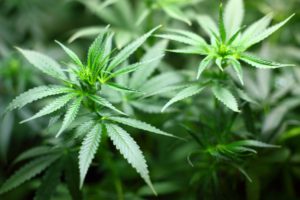Since cannabis legalization came into effect on October 17, 2018 nationwide, many Canadian landlords are wondering about their rights and how the legalization will affect their rental property investments. New rules allow cannabis to be used recreationally and enable Canadians to grow up to four plants in their homes. Some landlords are concerned that this is a slippery slope that can make their investments riskier.
The Cannabis Act is in force nationally, but each province also has a say in possession limits, minimum age, requirements on personal cultivation and where cannabis may be used in public spaces.
Currently, some provinces are banning cannabis use in all public spaces, noting that it’s is only to be allowed in private residences or a unit’s balcony or patio, if applicable. These rules make some landlords worried about tenants smoking within the homes. In BC, the Residential Tenancy Act mentions if the tenant has already agreed to no smoking of any combustible material (this would be applicable in multiple provincial tenancy agreements), this agreement extends to smoking cannabis. In Ontario, landlords cannot change the terms of the lease to include such a ‘no-smoking’ clause until the lease has run out. A no-smoking policy does not prohibit the growing of cannabis and lease language to prohibit growing may be deemed a violation of human rights.
With the introduction of these new regulations surrounding cannabis, condominium properties can put bylaws in place for units and common areas to restrict activities, such as smoking in common areas or within the building itself. Unfortunately, if you have a detached home you will be at the mercy of the tenancy agreement.
Why is growing cannabis so bad for buildings?
The process of growing cannabis, as for most plants, requires water and proper lighting. Grow-ops typically have excess moisture, improper electrical setup for lighting and inadequate ventilation – a combination that can lead to serious home issues, such as mould from excess moisture, pesticide and fertilizer contamination or electrical fires.
With any grow-op comes the retraction of any home insurance on the property, due to the health and deteriorating property conditions it can create. Not only is home insurance an issue with a grow-op, even after you remediate a property there are very few mortgage providers who will lend on this type of property due to the health implications. After a grow-op, the home would need to be remediated by professionals experienced in grow op remediation. Remediation could include any of the following: renovation to remove walls and ceilings and determine all possible mould build up, sanding of home framing to remove any possible mould build up, duct cleaning, correct alterations to electrical wiring (typically grow-op homes have altered wiring to bypass the electrical grid) and extensive environmental and air quality tests to ensure the home is free from biological and chemical hazards.
Why is smoking cannabis inside bad for buildings?
When you smoke anything indoors you are exhaling smoke, which becomes caked on walls, furniture, carpets and inside vents in the home. This is considered third-hand smoke, and it can linger and cause health effects over time if left exposed. Not only can it cause health problems but repairing such damage could require duct cleaning, carpet and furniture replacement and an overall deep clean of the home.
In conclusion landlords have legitimate reasons to be concerned. Allowing any activity to occur inside a rental unit that could cause damage and the devaluation of their investment would not be prudent. We suspect, however, there could be objections filed under human rights legislation and protection at the provincial level. If this proves to be the case, this would be just one more example of a power shift toward the tenant. Landlords with declining rights over their own properties may view this as another reason to exit the rental investment market.



Recent Comments